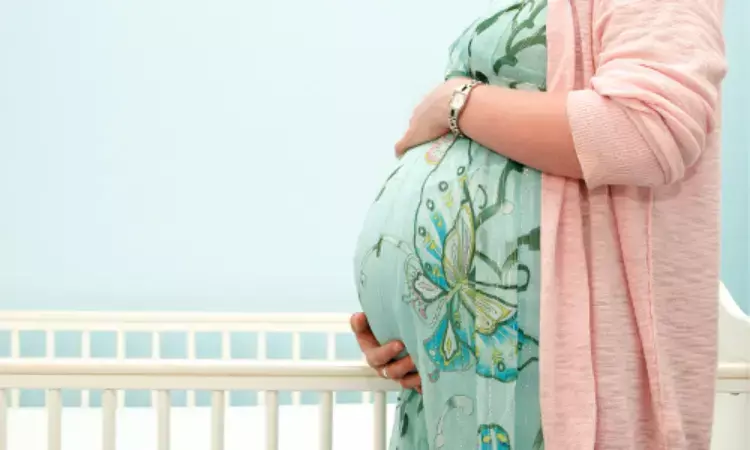- Home
- Medical news & Guidelines
- Anesthesiology
- Cardiology and CTVS
- Critical Care
- Dentistry
- Dermatology
- Diabetes and Endocrinology
- ENT
- Gastroenterology
- Medicine
- Nephrology
- Neurology
- Obstretics-Gynaecology
- Oncology
- Ophthalmology
- Orthopaedics
- Pediatrics-Neonatology
- Psychiatry
- Pulmonology
- Radiology
- Surgery
- Urology
- Laboratory Medicine
- Diet
- Nursing
- Paramedical
- Physiotherapy
- Health news
- Fact Check
- Bone Health Fact Check
- Brain Health Fact Check
- Cancer Related Fact Check
- Child Care Fact Check
- Dental and oral health fact check
- Diabetes and metabolic health fact check
- Diet and Nutrition Fact Check
- Eye and ENT Care Fact Check
- Fitness fact check
- Gut health fact check
- Heart health fact check
- Kidney health fact check
- Medical education fact check
- Men's health fact check
- Respiratory fact check
- Skin and hair care fact check
- Vaccine and Immunization fact check
- Women's health fact check
- AYUSH
- State News
- Andaman and Nicobar Islands
- Andhra Pradesh
- Arunachal Pradesh
- Assam
- Bihar
- Chandigarh
- Chattisgarh
- Dadra and Nagar Haveli
- Daman and Diu
- Delhi
- Goa
- Gujarat
- Haryana
- Himachal Pradesh
- Jammu & Kashmir
- Jharkhand
- Karnataka
- Kerala
- Ladakh
- Lakshadweep
- Madhya Pradesh
- Maharashtra
- Manipur
- Meghalaya
- Mizoram
- Nagaland
- Odisha
- Puducherry
- Punjab
- Rajasthan
- Sikkim
- Tamil Nadu
- Telangana
- Tripura
- Uttar Pradesh
- Uttrakhand
- West Bengal
- Medical Education
- Industry
Gastric Electrical Stimulation Safe During Pregnancy, Alleviates Vomiting Symptoms

Gastric Electrical Stimulation (GES), a therapy for medically refractory chronic nausea and vomiting, has long been considered contraindicated during pregnancy. However, a recent study published in Neurogastroenterology & Motility by Heithem Soliman and colleagues conducted at two tertiary centers challenges this assumption, shedding light on the safety of GES during pregnancy and its potential impact on symptoms.
This retrospective study included female patients of childbearing age who had undergone GES implantation. The study had several key objectives:
Assess the safety of GES during pregnancy.
Examine the impact of GES on pregnancy outcomes.
Evaluate changes in nausea and vomiting symptoms during pregnancy.
● Among the 91 female patients who had GES implanted, 54 without pregnancy were surveyed about their desire for pregnancy and concerns about GES safety during pregnancy:
● 16.7% expressed a desire for pregnancy.
● 7.4% reported concerns about GES safety during pregnancy.
● A total of 16 pregnancies were reported in 10 patients, and all pregnancies resulted in live births.
● 75.0% of these pregnancies involved premature births.
● Importantly, no adverse maternal or foetal outcomes directly related to GES were observed.
● Mild complications included pain at the implantation site during three pregnancies (18.8%).
● In terms of symptom management, the severity and frequency of nausea and vomiting significantly increased during the first trimester but decreased after delivery, with symptoms becoming less severe than before pregnancy.
This study challenges the assumption that GES is contraindicated during pregnancy. It highlights that GES does not appear to pose significant risks to maternal or foetal health and may offer symptom relief to pregnant individuals experiencing chronic nausea and vomiting. However, it's important to note that this study is retrospective and involves a relatively small sample size. Therefore, further research and clinical evaluation may be needed to confirm these findings. Nevertheless, this study provides valuable insights into the safety of GES during pregnancy and offers hope to individuals seeking relief from pregnancy-related nausea and vomiting.
Reference:
Soliman, H., Schalla, M. A., Coffin, B., & Gourcerol, G. (2023). Gastric electrical stimulation is safe during pregnancy and delivery: Results from a French cohort. Neurogastroenterology and Motility: The Official Journal of the European Gastrointestinal Motility Society. https://doi.org/10.1111/nmo.14657.
Dr Kamal Kant Kohli-MBBS, DTCD- a chest specialist with more than 30 years of practice and a flair for writing clinical articles, Dr Kamal Kant Kohli joined Medical Dialogues as a Chief Editor of Medical News. Besides writing articles, as an editor, he proofreads and verifies all the medical content published on Medical Dialogues including those coming from journals, studies,medical conferences,guidelines etc. Email: drkohli@medicaldialogues.in. Contact no. 011-43720751


